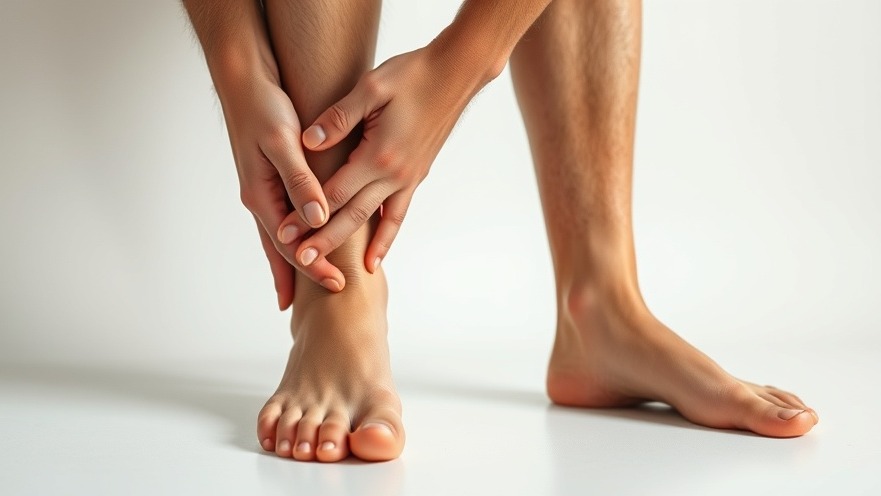
Understanding the Connection Between Feet and Knees
Your feet serve as the body's foundation, and their functionality plays a crucial role in your overall health—particularly the health of your knees. Issues arising from foot conditions can have a surprising ripple effect, leading to knee pain and complications. In this article, we explore how the alignment, strength, and even muscle tightness in the feet can directly influence knee health.
1. The Impact of Foot Alignment on Knee Position
The alignment of your feet dramatically influences the position of your knees. Take flat feet, for instance. This condition, known as overpronation, can cause the feet to roll inward, shifting the knees inward as well. This misalignment requires the knees to work harder to support your legs, often resulting in discomfort, particularly on the inner part of the knee.
Conversely, a high arch can push the knees outward, exerting excessive stress on the knee joints. This differential stress could affect cartilage and ligaments, increasing the likelihood of pain and injury. Ensuring proper alignment with orthotics or supportive footwear may mitigate these issues and promote better knee health.
2. The Shock Absorption Role of Feet
Your feet play a vital role in shock absorption while you run or walk. Structural problems in your feet—such as flat arches or improper footwear—may diminish this natural shock-absorbing capability. As a result, more impact is transferred to the knees, leading to pain and discomfort over time. To protect your knees, consider wearing well-fitting shoes that enhance foot function and reduce stress on your knees.
3. Strength of Foot Muscles and Knee Stability
Weak intrinsic foot muscles can destabilize your feet, which in turn affects how your knees function. For instance, flat arches may collapse inward, redirecting stress onto the knee joints. By strengthening these foot muscles through targeted exercises, balance and stability are improved, enabling your knees to support your body weight and motion better.
4. The Gait Factor: How Foot Irregularities Alter Movement
Foot irregularities like bunions or plantar fasciitis can considerably alter your gait—the pattern of movement you employ while walking or running. If foot pain forces you to adjust your stride or leg rotation, it can lead to stress on the knees. Using gait analysis can be beneficial in identifying and addressing such issues, offering personalized insights that may aid in alleviating knee pain.
5. Muscle Tightness: A Hidden Culprit Behind Knee Pain
It's essential to recognize that muscle tightness or imbalances in the legs can contribute to knee discomfort, even if the tightness isn’t located in the feet. Tightness in calf muscles, for instance, can affect the Achilles tendon, leading to complications like heel pain or Achilles tendonitis. This illustrates the complex connectivity between your knees and feet, underscoring the importance of maintaining flexibility and strength throughout the entire leg.
Taking Proactive Steps for Healthier Knees
Just as your feet support your body, getting to the root of foot-related issues can play a vital role in managing knee pain and enhancing your overall health. At your local foot care specialist, we emphasize a holistic approach to foot care. Whether through exercises, proper footwear, or regular check-ups, caring for your feet promotes better knee function.
Don't let foot issues derail your mobility! If you experience knee pain linked to foot discomfort, reach out to your local foot care specialist. We're there to help you understand the underlying causes of your knee pain and explore effective treatment options.
Contact us today to schedule your appointment. Remember, your journey to better knee health starts with taking care of your feet!
 Add Row
Add Row  Add
Add 




Write A Comment